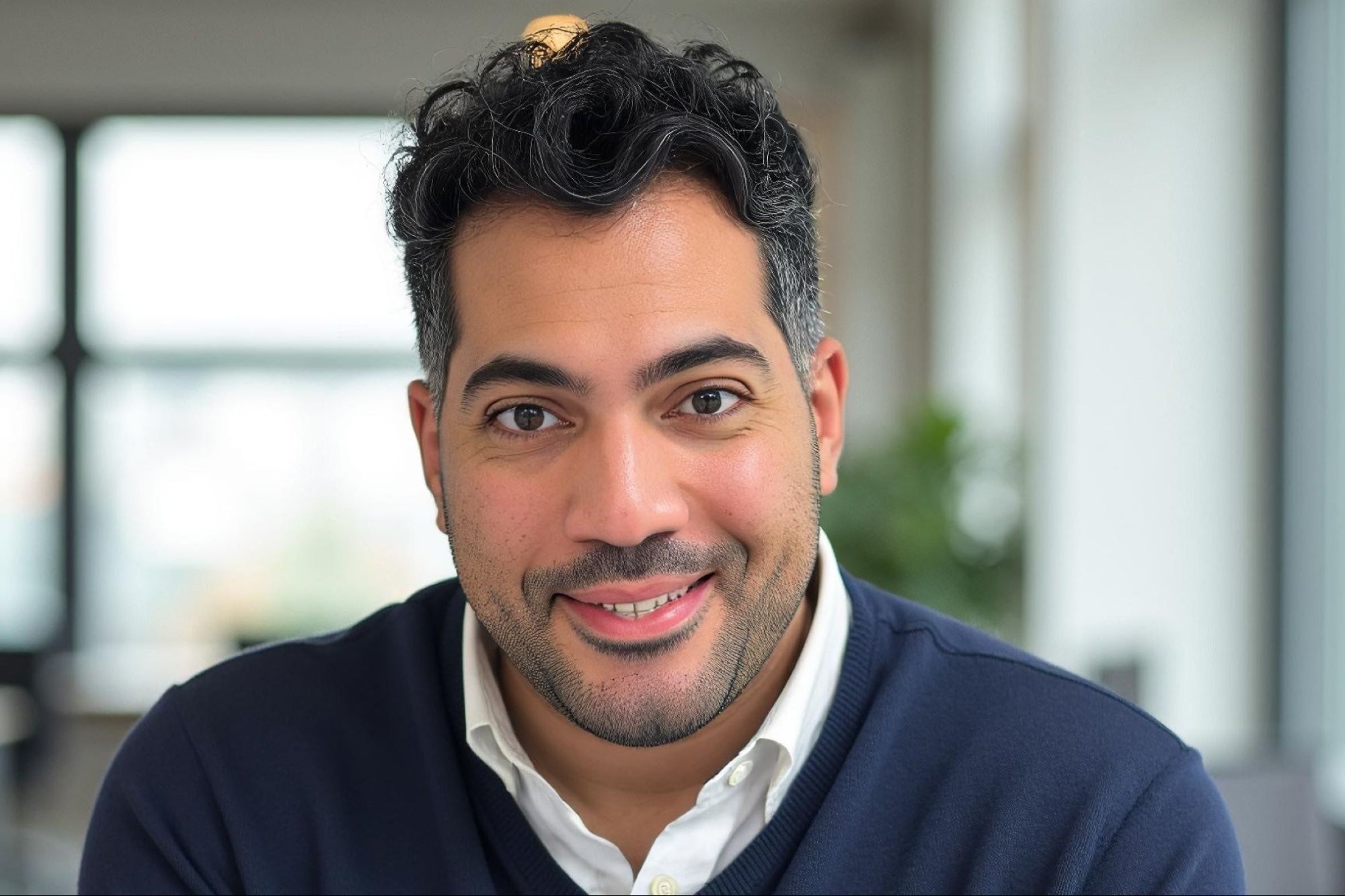Pathos Communications: Disruptive Influence Omar Hamdi is betting that public relations is overdue for reinvention
Opinions expressed by Entrepreneur contributors are their own.
You're reading Entrepreneur United Kingdom, an international franchise of Entrepreneur Media.

Public relations is a $107bn industry that rarely questions its own orthodoxy. Agencies operate on retainer, charge fees upfront, and justify outcomes later. Results are often measured in the nebulous currency of "impressions" or "strategic visibility." Clients—particularly large corporates—are expected to trust the process.
Omar Hamdi does not. The founder of Pathos Communications, a London-based tech-enabled PR firm, has spent the past six years challenging the standard model, one invoice at a time. His firm bills clients only after securing coverage in a publication the client values. It is a commercial inversion of PR's prevailing logic. And it is working.
Since launching in 2019, Pathos has grown to a staff of 60, representing 20 nationalities, and now serves more than 5,000 clients across 53 countries. According to the Financial Times' FT1000 rankings, it is currently the fastest-growing advertising and marketing company in the UK, and the 33rd fastest-growing European company in any sector. Unlike many of its peers, Pathos has remained consistently profitable and cash-generative.
Its clientele is drawn almost entirely from the global majority: small and medium-sized enterprises (SMEs). These account for roughly 90% of all businesses globally and more than half of employment, according to the World Bank. Yet their presence in mainstream media is disproportionately marginal. "Go to any major news site's business section," says Hamdi. "You'll find political coverage or stories about billion-dollar companies. But where are the SMEs?"
Results, or nothing
Pathos's wager is simple: most SMEs will not commit thousands to speculative media exposure, but will gladly pay for tangible outcomes. The company's "pay-on-results" model depends on selecting stories that are almost certain to succeed. To that end, Pathos has developed a trove of first-party data on over 250,000 prospects and built an internal AI tool—PathosMind—to triage, score, and shape narratives before a human pitch is made.
"We almost always filter failures out at the qualification stage," Hamdi explains. "By the time a client receives a proposal, we already know it's publishable."
At the heart of the firm's approach is a proprietary editorial framework. In 2022, Hamdi developed an internal ontology—a classification system—of publishable story types. "Editors are more predictable than you think," he quips. "There are only 13 kinds of story. If you want to know what they are, apply for a job and sign an NDA."
While glib, the underlying proposition is serious: media success is neither mystical nor purely relational—it is pattern-driven, and thus increasingly susceptible to algorithmic foresight. PathosMind operationalises that idea.
The neutrality of visibility
Some might question whether this model encourages soft or commercially biased content. Hamdi rejects that framing. "There's no dichotomy between substance and style. A piece on food security in the Sahel is competing for attention with a photo of Kim Kardashian. If your story isn't presented well, no one will read it—however important it is."
Pathos's remit is deliberately narrow. It does not traffic in political campaigns, reputation laundering or contentious lobbying. "What we do is globally uncontroversial," Hamdi says. "We're giving a voice to entrepreneurs and growing businesses. No government—except perhaps North Korea—could object to that."
The company has also avoided the industry's penchant for credentialism. Hamdi famously does not read CVs when hiring. "I look for ambition, grit, humility—substance over style. And that's not on paper. It's instinct. It's chemistry. It's like deciding whether to talk to someone in a café or try on a pair of shoes. The only exception is our finance team - they can't learn on the job since the margin of error is zero."
His own background is suitably eclectic. Before founding Pathos, Hamdi presented a BAFTA-nominated BBC consumer show, was a columnist, and a contributor to Radio 2. He understands the media not just as a commercial platform but as a cultural force—and is now using that understanding to rewire its access points.
A new visibility infrastructure
The firm maintains direct, commercial relationships with top-tier publications, bypassing the gatekeeping networks that define much of the PR world. Hamdi has never joined a PR trade association or sought admittance to press clubs. "I don't know if we've been excluded," he says. "I've simply never tried to enter."
While other agencies express scepticism - some warning publicly against "no-win, no-fee" media firms (a sleight against Pathos, since they are the only one) - Hamdi says they often call privately for help when their own client deadlines loom. "It's no different from Uber upsetting taxi drivers or PayPal rattling banks," he notes. "That's the price of disruption."
Pathos's long-term ambition is not acquisition or exit, but endurance. "How can you exit a mission this big?" Hamdi asks. "I expect my grandchildren to be collecting dividends from Pathos. My work will be done when media coverage is as essential—and as accessible—for small businesses as having a website."
In that vision lies the firm's disruptive strength—and its greatest risk. Pathos is not merely streamlining publicity. It is reconfiguring who gets to participate in public discourse. For now, the firm remains an outlier. But if the rest of the PR industry continues to charge for potential rather than proof, it may soon find itself being recast.












